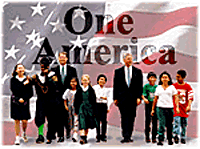 |
 |
Peace Games was established in 1992 on the belief that young people have both the power and the responsibility to change the world and create safe schools. Through teaching the ideals of cooperation, respect for differences and personal responsibility, Peace Games provides children and families with the skills, language and supportive relationships to create safe schools and combat the ills of violence and racism.
Recognizing that violence and bigotry are learned behaviors, Peace Games begins educating children in kindergarten. By reaching children early and consistently as an integrated part of their education, Peace Games is able to build the knowledge and relationships necessary for establishing safe, healthy schools. The program has created long-term partnerships with nine Boston area elementary and middle schools located in different neighborhoods. One of Peace Games' activities is the Pen-pal Program, which creates a bridge between these various neighborhoods and allows students from different racial and ethnic backgrounds to share their Peace Games and school experiences. Pen-pals have the opportunity to meet in person and collaborate on projects at the annual Peace Games Festival. In addition, for one hour each week, a diverse staff of college volunteers teach a multi-year, experiential K-8 violence prevention curriculum. Activities that the curriculum utilizes include role playing and games. The curriculum is unique in that it challenges students to put their education into action through designing and executing community-service projects related to increasing safety at their schools and in their communities. At the end of the year, students from each of the schools come together to share both their community-service projects and the lessons they have learned. Working with students of diverse backgrounds, children communicate and cooperate cross-culturally while simultaneously exploring creative solutions to problems.
Outcomes and Significant Accomplishments After participating in the program in 1997, 85% of the students said Peace Games taught them how to resolve conflicts without fighting, and 95% of the teachers felt Peace Games taught their students skills for resolving conflicts. In 1998, the program will mobilize over 250 college students to deliver nearly 40,000 hours of teaching and service to over 1,600 elementary and middle school students. By May 1998, these students will have designed and implemented hundreds of projects to make their school a more peaceful place.
|
![]()
To comment on this service,
send feedback to the Web Development Team.
![[White House icon]](/New/images/home_pin.gif)
![[Help Desk icon]](/New/images/help_pin.gif)